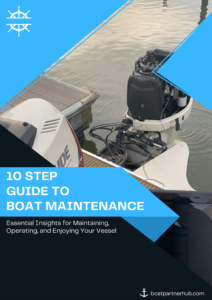Blog
Boating Safety 101: Your Comprehensive Guide to Safe and Enjoyable Trips

Unlock the Secrets of Safe Boating: Your Ultimate Guide to Seamanship and Adventure
Ahoy there, fellow boating enthusiasts! If you’re passionate about cruising the waterways, basking in the sun, and feeling the wind in your hair, then you already know that boating can be an exhilarating experience. But amidst all the excitement, it’s crucial to prioritize safety to ensure every voyage remains a memorable and enjoyable one. In this comprehensive guide, we’ll cover essential boating safety tips and best practices that will make your trips safer and more delightful. So, let’s unfurl the sails and embark on this journey to boating safety excellence!
1. Wear Your Life Jacket – Always!
When it comes to boating safety, wearing a life jacket is non-negotiable. Statistics show that a significant number of boating-related fatalities could have been prevented with the use of life jackets. So, before you set sail, ensure that every passenger on board has a properly fitting life jacket. It’s not just a piece of gear; it’s a life-saving flotation device that can keep you afloat in emergencies.
2. Weather Watch: Check Before You Set Out
The weather can be unpredictable, especially on the water. Before you embark on your boating adventure, check the weather forecast to avoid getting caught in storms or unfavorable conditions. Strong winds and rough waters can quickly turn a pleasant outing into a dangerous situation. Be prepared and plan your trip accordingly.
3. Float Plan: Let Others Know Your Whereabouts
Always file a float plan with a friend or family member who will stay ashore during your boating excursion. A float plan includes your destination, route, estimated time of return, and contact information. Should anything go awry, this information can be crucial for rescuers to locate you quickly. Remember to update your float plan if your plans change during the trip.
4. Keep Your Boat Well-Maintained
Regular maintenance of your boat is vital for safe voyages. Check the engine, fuel, electrical systems, and hull integrity before heading out. Inspect the safety equipment on board, such as fire extinguishers, distress signals, and navigation lights, to ensure they are in working order. Preventative maintenance can prevent unexpected breakdowns and keep everyone safe on the water.
5. Avoid Alcohol Consumption
While it may be tempting to crack open a cold one while cruising, it’s best to avoid alcohol consumption while operating a boat. Alcohol impairs judgment, reaction times, and coordination, significantly increasing the risk of accidents on the water. Keep the celebration for when you are safely back ashore.
6. Navigation Know-How
Before navigating unfamiliar waters, ensure you are well-versed in boating navigation. Familiarize yourself with navigational aids, such as buoys, beacons, and markers, to understand waterway directions and potential hazards. Invest in a reliable GPS navigation system to complement traditional navigation methods.
7. Maintain Safe Speeds
Speeding on the water can be as dangerous as speeding on the road. Always observe speed limits and adjust your speed according to the water and weather conditions. Slow down in congested areas, near docks, or when visibility is low. Maintaining a safe speed enhances maneuverability and reduces the risk of collisions.
8. Stay Alert and Avoid Distractions
Just like driving a car, operating a boat requires your full attention. Avoid distractions such as texting, talking on the phone, or loud music that may hinder your situational awareness. Be vigilant of other vessels, swimmers, or objects in the water to avoid potential accidents.
9. Fire Safety Precautions
Fire can be catastrophic on a boat, so take fire safety seriously. Install smoke detectors in cabins and living areas and have a fire extinguisher readily accessible. Regularly inspect and maintain electrical systems to prevent potential fire hazards.
10. Respect Wildlife and the Environment
As boaters, we have a responsibility to protect the marine environment and its inhabitants. Avoid disturbing wildlife, and never dispose of trash or waste overboard. Use eco-friendly cleaning products and practices to minimize your impact on the water and shoreline ecosystems.
Conclusion
Congratulations! You’ve now completed Boating Safety 101, and you’re equipped with the knowledge to ensure your boating adventures are safe and enjoyable. By prioritizing safety, maintaining your vessel, being aware of your surroundings, and respecting the water and its inhabitants, you can create lasting memories without compromising on safety. So, unfurl those sails, hoist the anchor, and set forth on your next voyage with confidence, knowing you’re a responsible and savvy boater. Happy boating!


